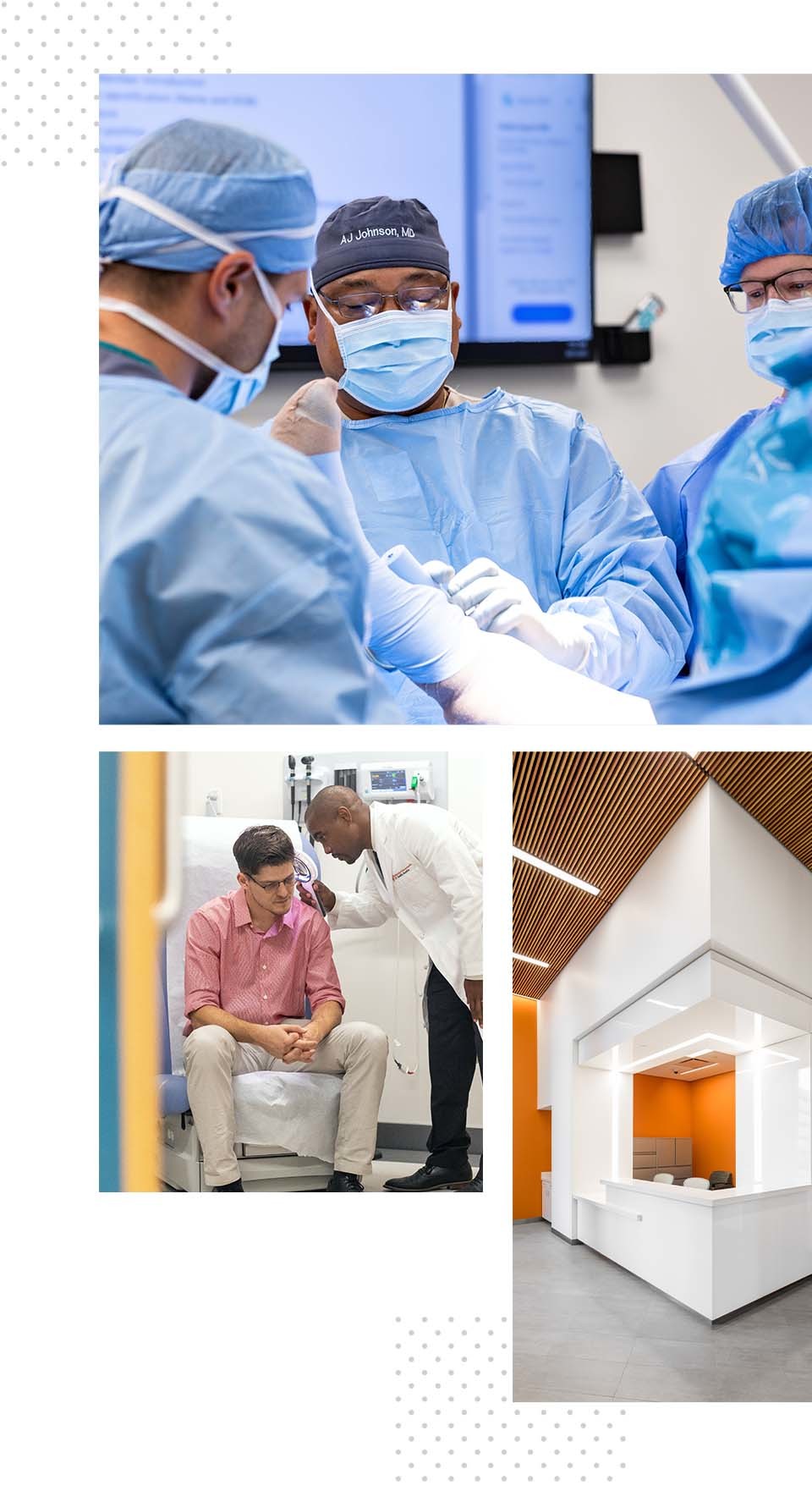World-Class Health Care in the Heart of Texas
Integrated health care. It’s something most people have never experienced: a system of care that’s not only multidisciplinary but multispecialty. Your doctors all know each other, and they work together to help you get and stay healthy.
Dell Medical School, the anchor of the emerging University of Texas Medical Center, is working to bring world-class, person-centered, integrated care to the heart of Texas. It’s a vision as big as Texas, for Texas and beyond.

UT Health Austin
The clinical practice of Dell Med, UT Health Austin, includes 60-plus primary care, walk-in and specialty clinics as well as adult and pediatric programs in partnership with Ascension Seton and Dell Children’s Medical Center of Central Texas. It’s open now, even as the UT and MD Anderson specialty hospitals of the future that make up UT Medical Center ready for construction on the former site of the Frank Erwin Center.
Care in the Community
Dell Med faculty physicians, residents and fellows practice in community settings across Central Texas, from CommUnityCare Health Centers to Integral Care and more. Many also provide care at Dell Seton Medical Center at The University of Texas, the primary teaching hospital affiliated with Dell Med.
Dell Med students join with volunteer physicians and other learners to staff the C.D. Doyle Clinic. It provides care for un- and underinsured patients, particularly those experiencing homelessness.